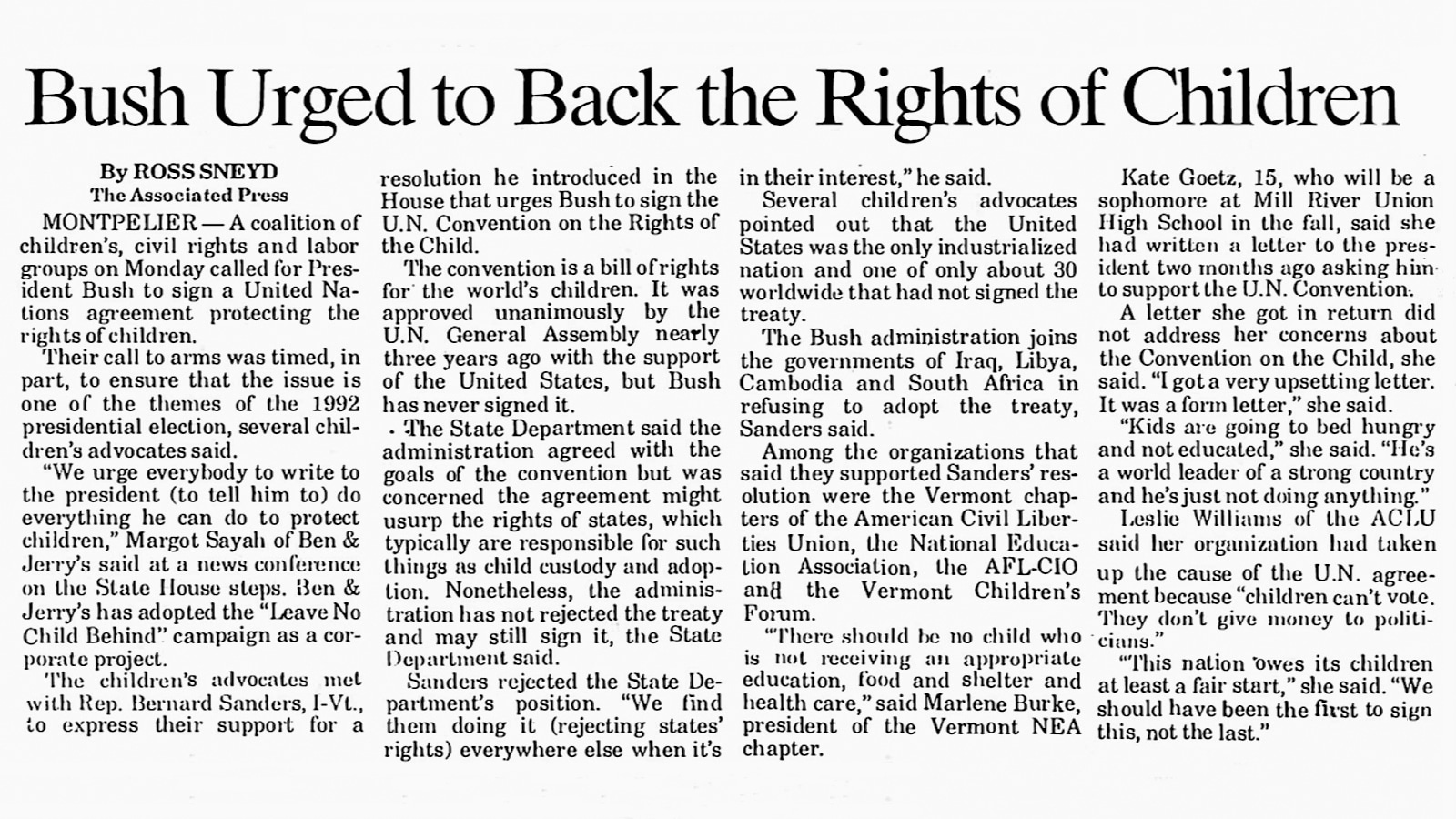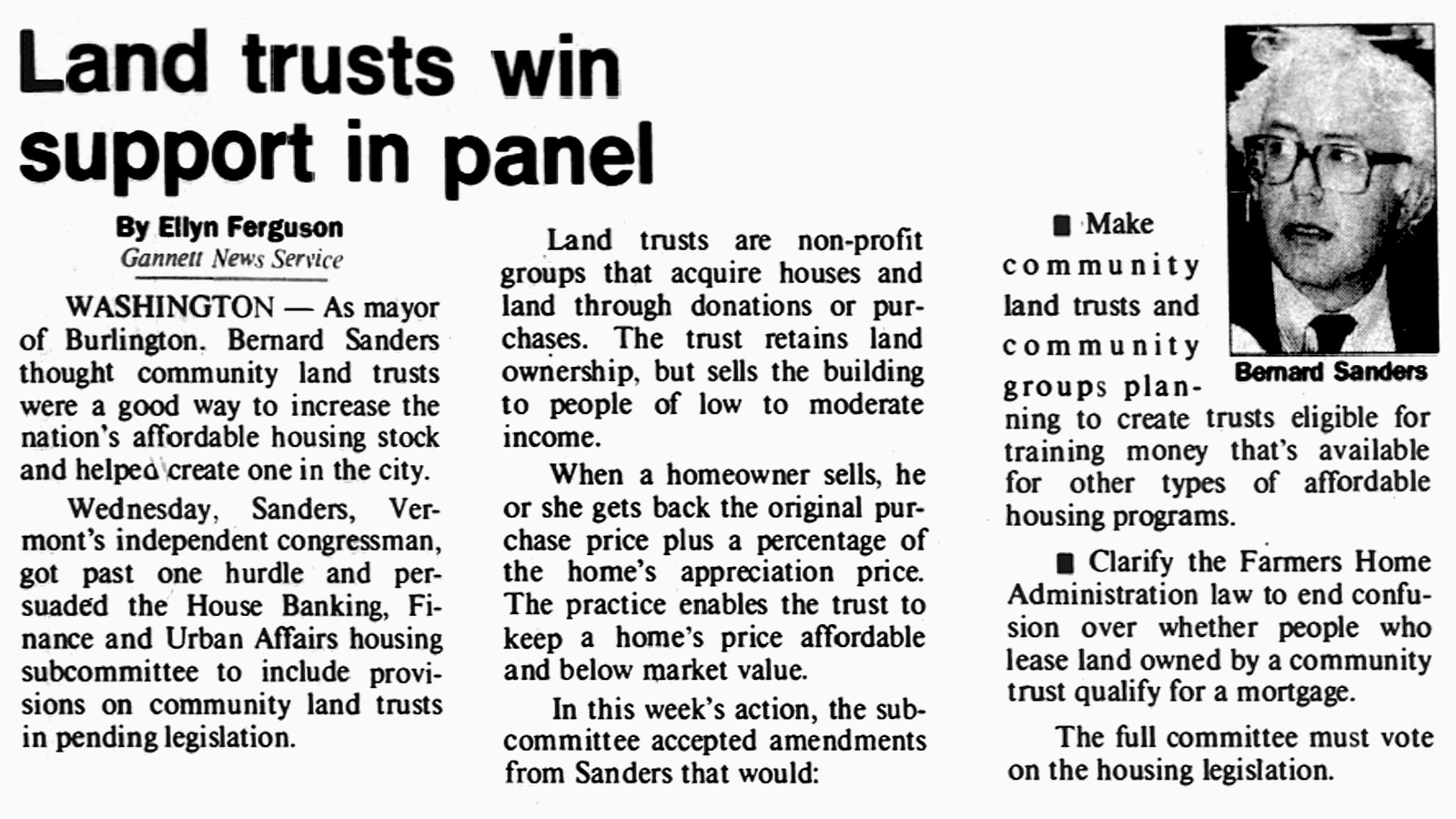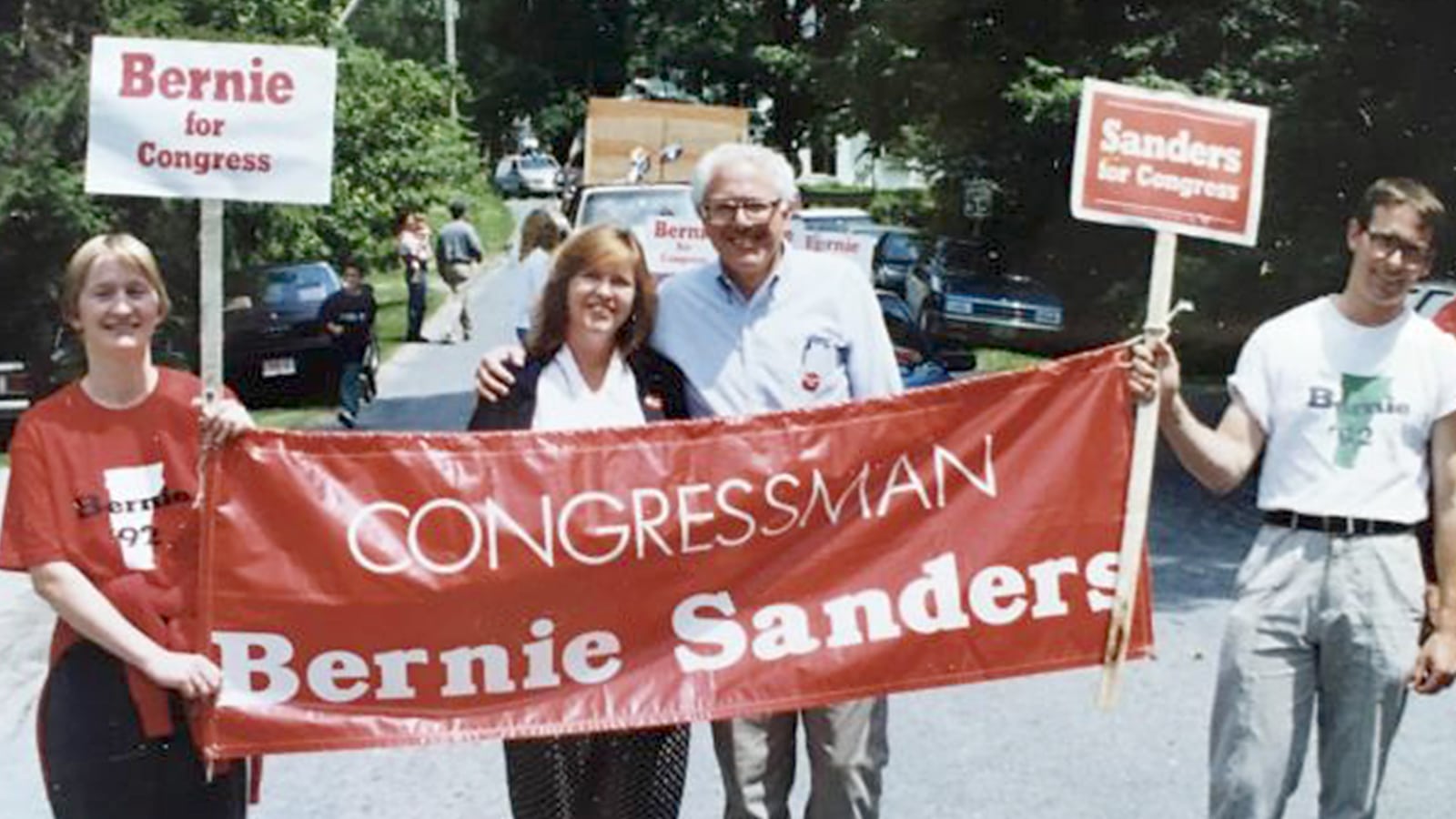In 1992, Rep. Bernie Sanders introduced H. Con. Res. 15, urging then-President Bush to sign and ratify the United Nations Convention on the Rights of the Child treaty. His efforts continued after President Clinton took office in 1993. House Resolution 515 outlined the alarming status of children in the U.S. and implored the President to place the needs of the country’s children at the top of his national agenda by taking immediate action on the United Nations document.[1]
The United Nations Convention on the Rights of the Child codifies existing international law regarding children and is often tagged the “Magna Carta” or “Bill of Rights” for children. The convention recognizes society’s responsibilities to children by setting minimum standards for survival, health, and education. It also contains protections for kids against violence and exploitation.[1]
Sanders said, “It makes no sense to me that, with the end of the Cold War, we continue to have a defense budget in excess of $270 billion while our nation’s children are suffering.” He noted that one in five children live in poverty and 100,000 children go to sleep homeless every night in the U.S. “If there has ever been a time to rethink the priorities of this nation, the time is now. Our children can wait no longer” he added, following a meeting with representatives from the Vermont NEA, the Vermont AFL-CIO, the World Children’s Center, Children’s Forum, and other groups concerned about kids.[1]
In 1993, Sanders introduced another resolution in the House and Sen. Patrick J. Leahy in the Senate, calling on President-elect Clinton to sign the treaty. Because of President Bush’s opposition to the treaty, the U.S. was now the only western industrialized nation that had not signed or ratified the treaty.
Over 42 co-sponsors signed on to the resolution, including Reps. Henry Waxman of California, a subcommittee chairman in the powerful House Energy and Commerce Committee, and House Women’s Caucus co-chair Patricia Schroeder of Colorado. Sanders was optimistic that President-elect Clinton would sign the document upon taking office.[2]
He also noted that the U.S. had the highest child poverty rate in the industrialized world, with 20 percent of the nation’s children living at or below the poverty level. The U.S. also ranked 20th in the world in infant mortality and 31st in the world in low-birthweight babies. More than 10 million children, or 15 percent of all American children, lacked health insurance.[2]
The Clinton Administration took positive steps with the Departments of Justice, State, Health and Human Services to conduct a comprehensive review of the convention in March of 1994.
 Back to Timeline
Back to Timeline


